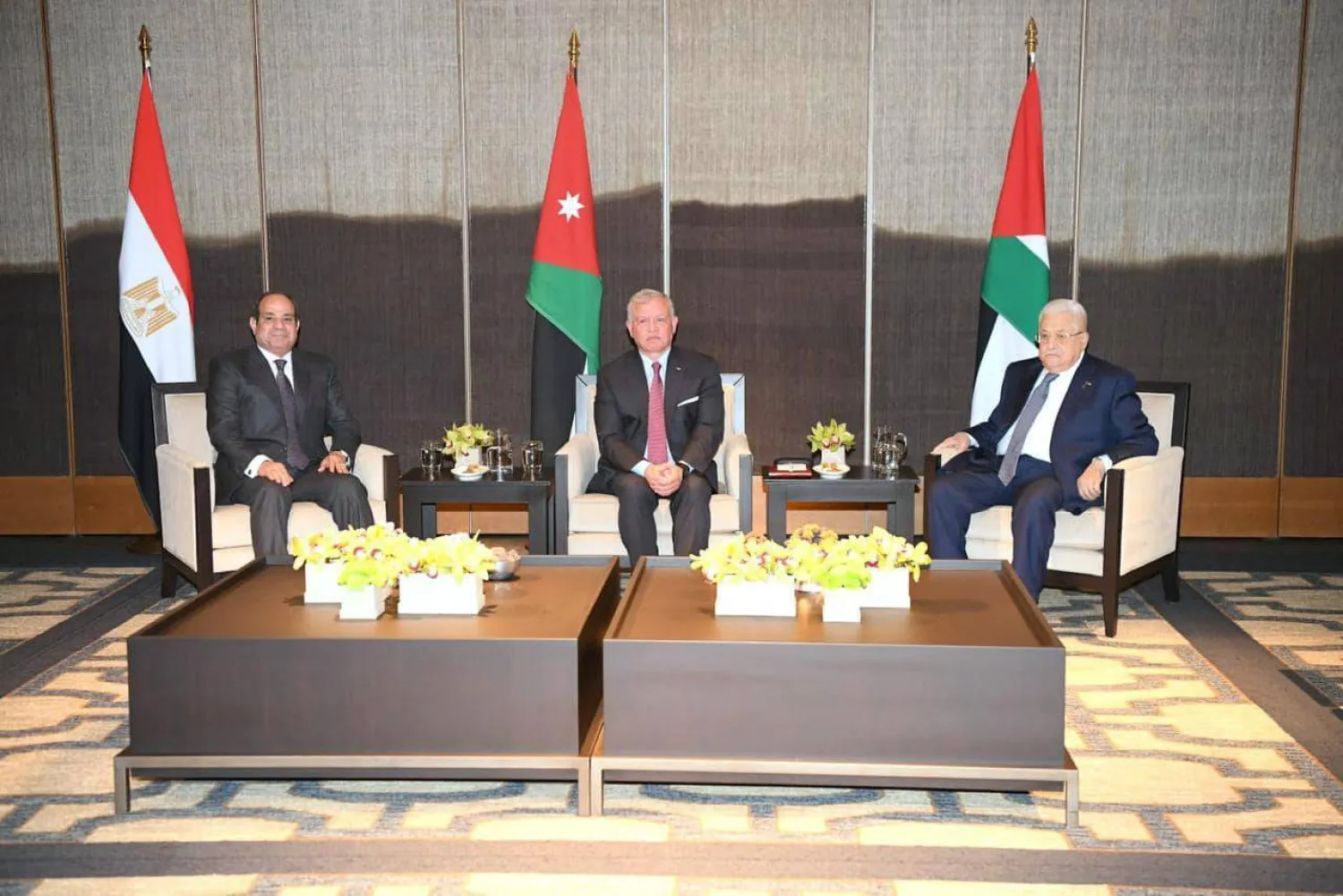Egypt and the United States agreed to “reject the principle or attempts to displace Palestinians from their lands” and affirmed “maintaining intensive consultation” to advance efforts to calm the situation in the Gaza Strip and prevent the expansion of the conflict.
Discussions that brought together Egyptian President Abdel Fattah El-Sisi and US Secretary of State Antony Blinken, in Cairo on Thursday, confirmed “adherence to the path of the two-state solution as a basis for achieving stability in the region.”
Egypt’s presidential spokesman, Ahmad Fahmy, said that the US Secretary of State valued Cairo’s efforts to “calm down the situation in the region and consolidate peace and stability,” while Sisi underlined “his country’s keenness to maintain coordination with Washington in a way that serves regional security and stability.”
Blinken’s visit to Cairo came as the last stop of his Middle Eastern tour, a day after a tripartite summit that brought together Sisi, Jordanian King Abdullah II, and Palestinian President Mahmoud Abbas, which agreed to “reject any efforts, attempts, or proposals aimed at liquidating the Palestinian cause” or displacing the Palestinians outside their lands.”
In this context, Sisi stressed the need for the international community to assume its responsibilities towards implementing the relevant UN resolutions to end the humanitarian catastrophe in Gaza.
Meanwhile, 169 trucks crossed the Rafah border crossing in North Sinai on Thursday to deliver aid to the Gaza Strip.
An official Egyptian source was quoted by the Middle East News Agency as saying that the trucks were loaded with large quantities of humanitarian and relief aid, medicines and medical supplies, noting that the Rafah crossing also received 25 injured Palestinians, who were transferred from hospitals in the Gaza Strip for treatment in Egypt.
In remarks before leaving Cairo, Blinken said that rapprochement between Arab countries and Israel was “the best way to isolate Iran.”
The US top diplomat said that Israel’s integration, “with security assurances and commitments from regional countries and as well from the United States,” was linked to a pathway to establish a Palestinian state.
“That’s the single best way to isolate, to marginalize Iran and the proxies that are making so much trouble – for us and for pretty much everyone else in the region,” he stated.
In another Egyptian move to calm the situation in the Gaza Strip and ensure the flow of aid to the Palestinians, Sisi told British Prime Minister Rishi Sunak, in a telephone call on Thursday, that the international community must ensure the access of relief aid to the people of the Strip to end their humanitarian suffering.
The discussion also touched on the situation in the Red Sea region and navigation security, where the two sides underlined the importance of intensified work to avoid the expansion of the conflict in the region, and to enhance security and stability factors at the regional level.









